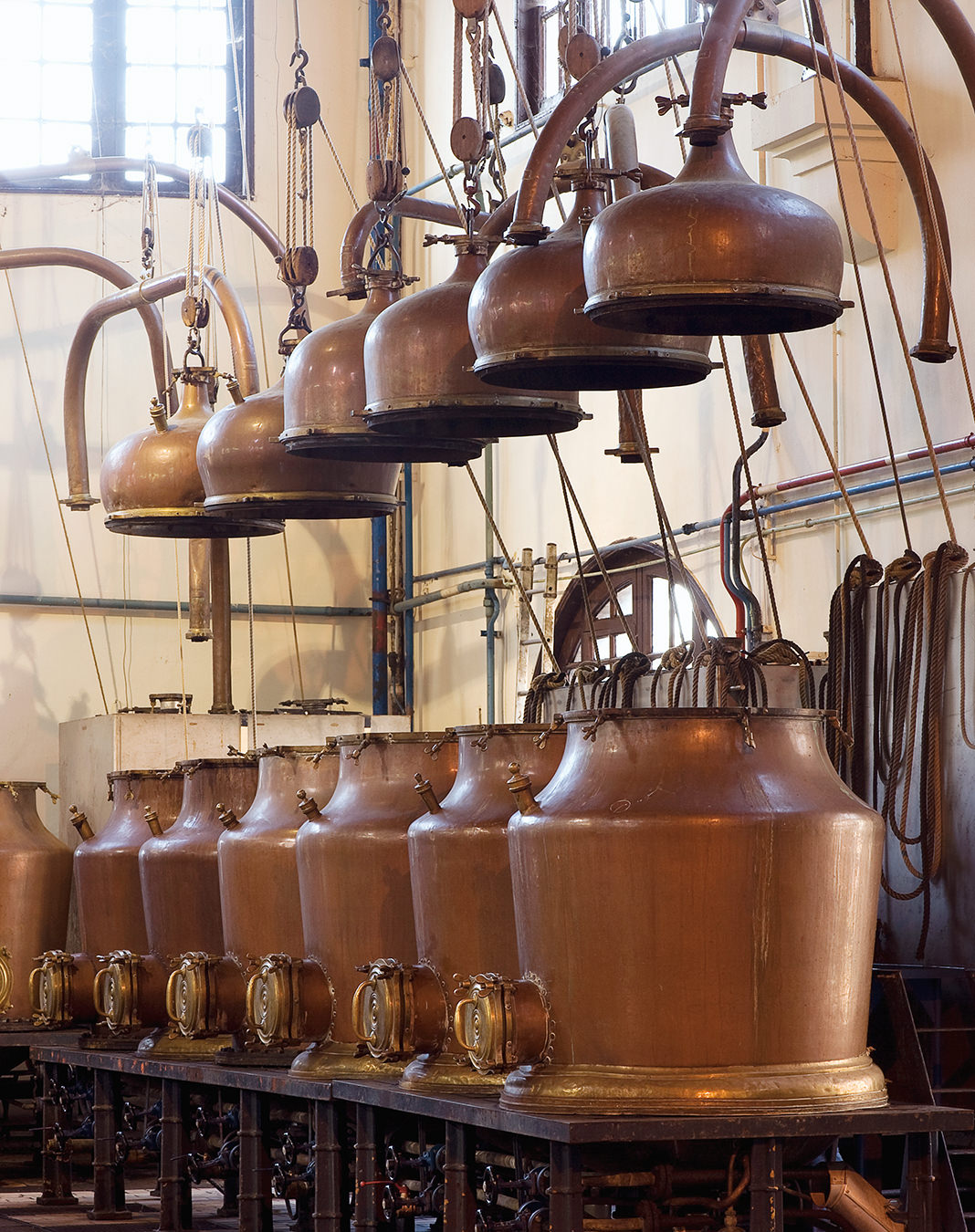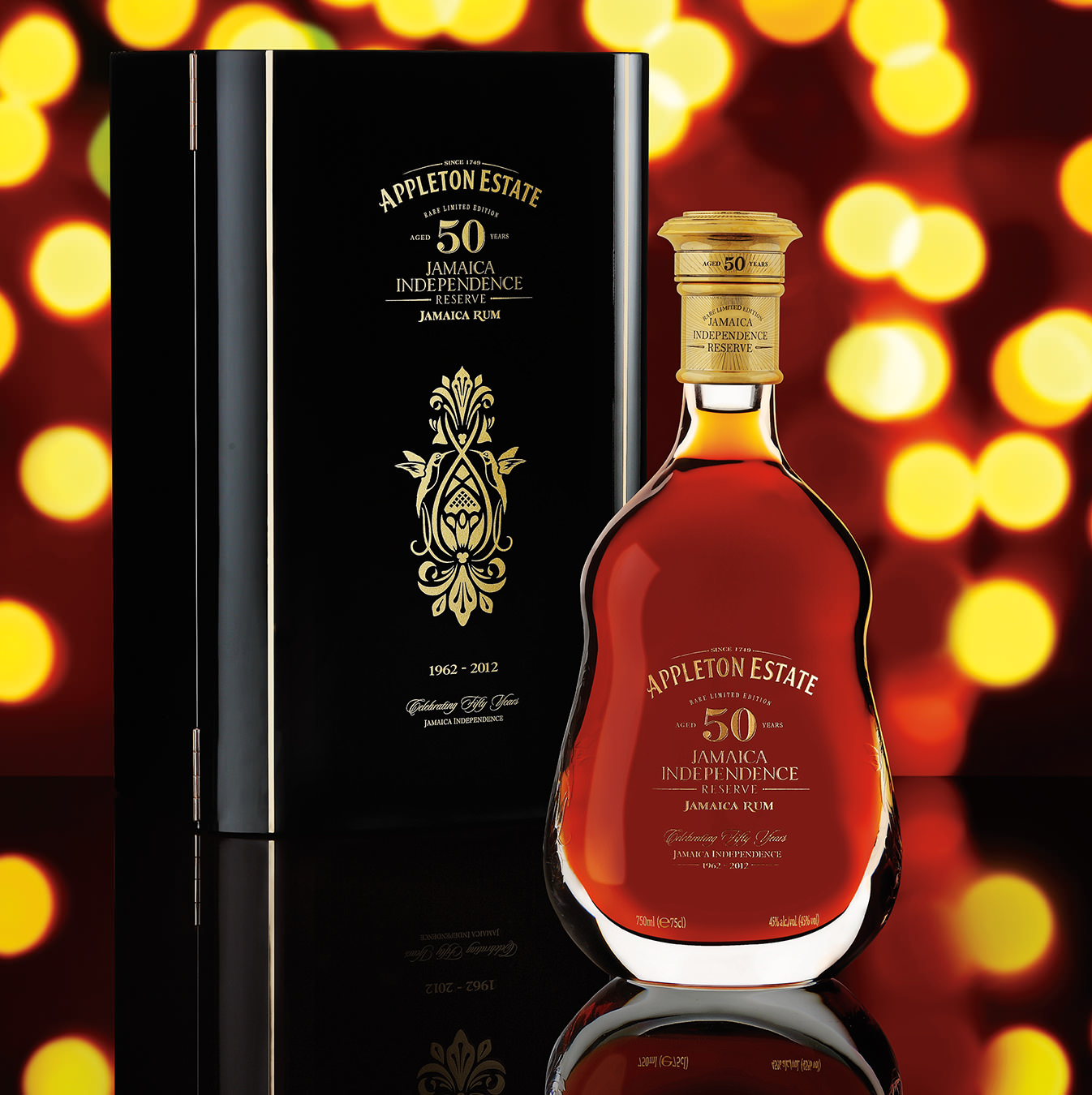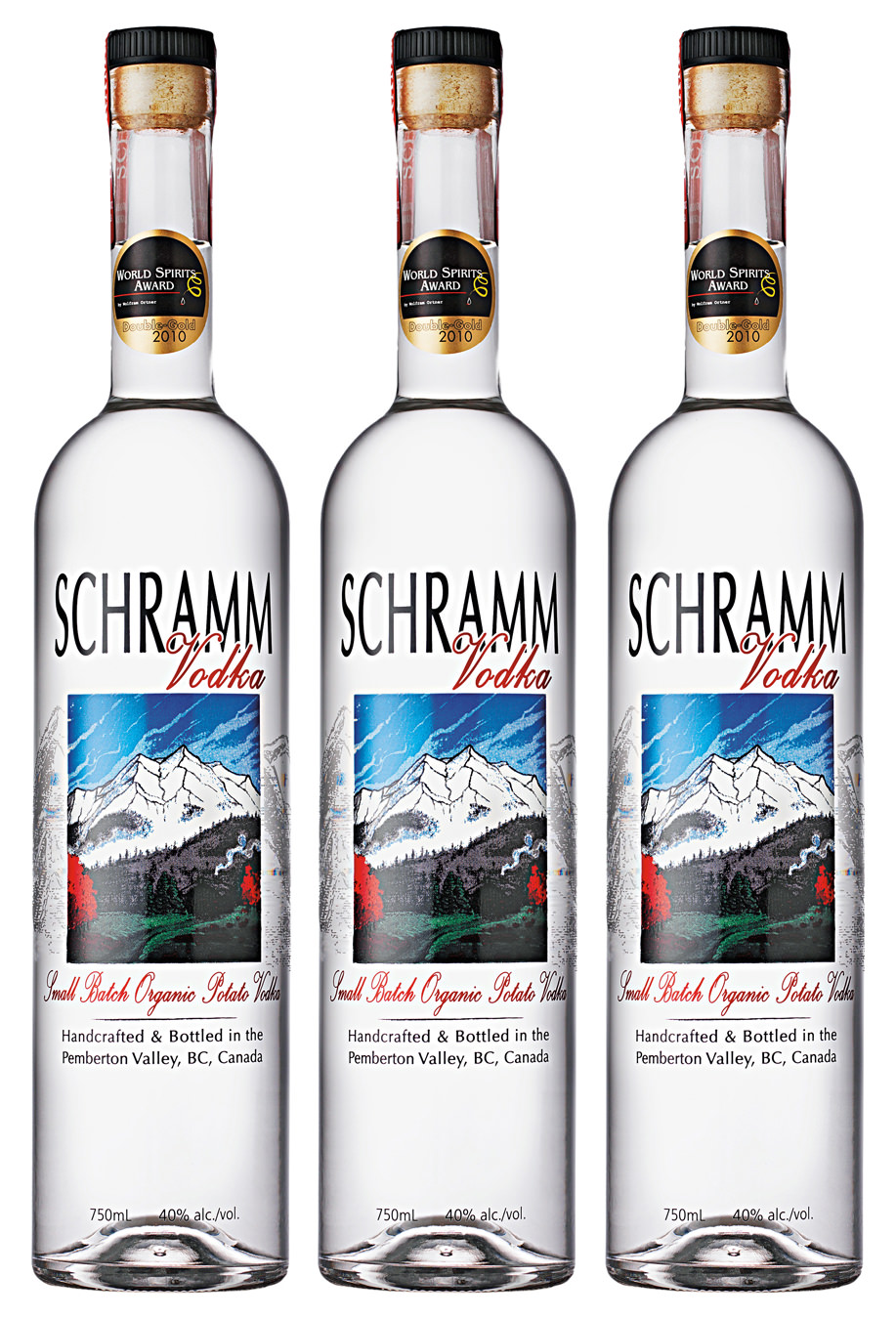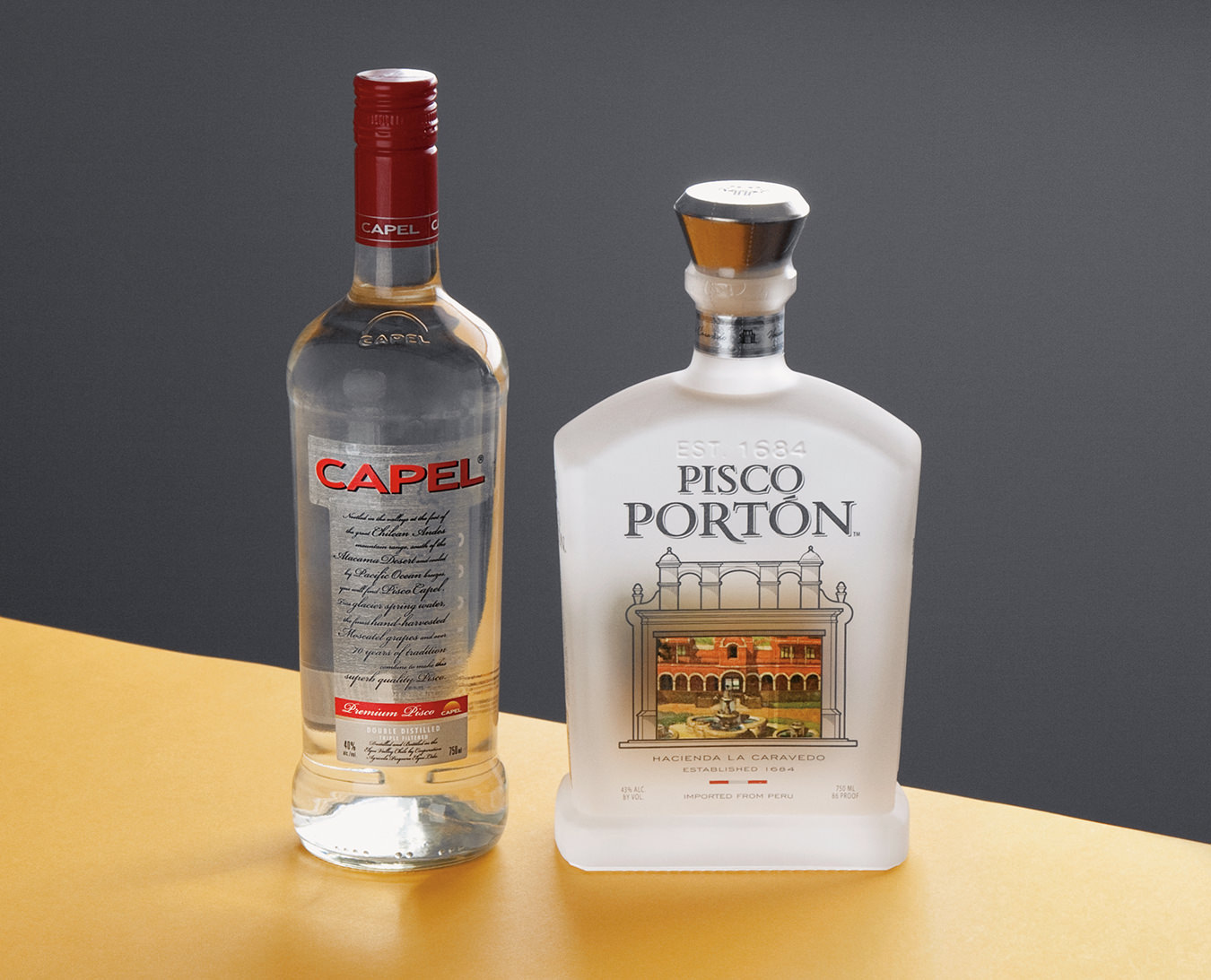-
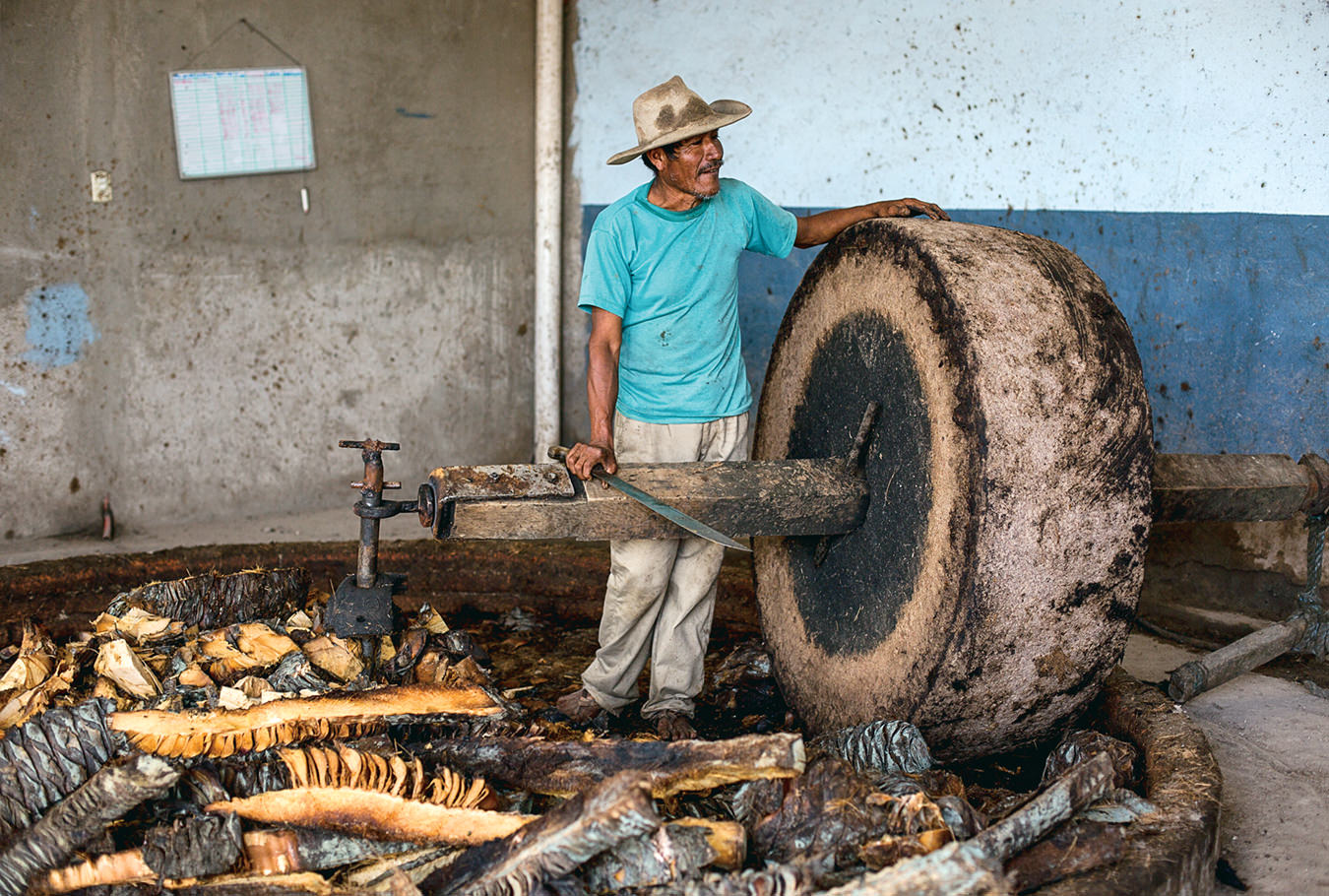
Hand-processing agave for mescal production in Oaxaca, Mexico.
-
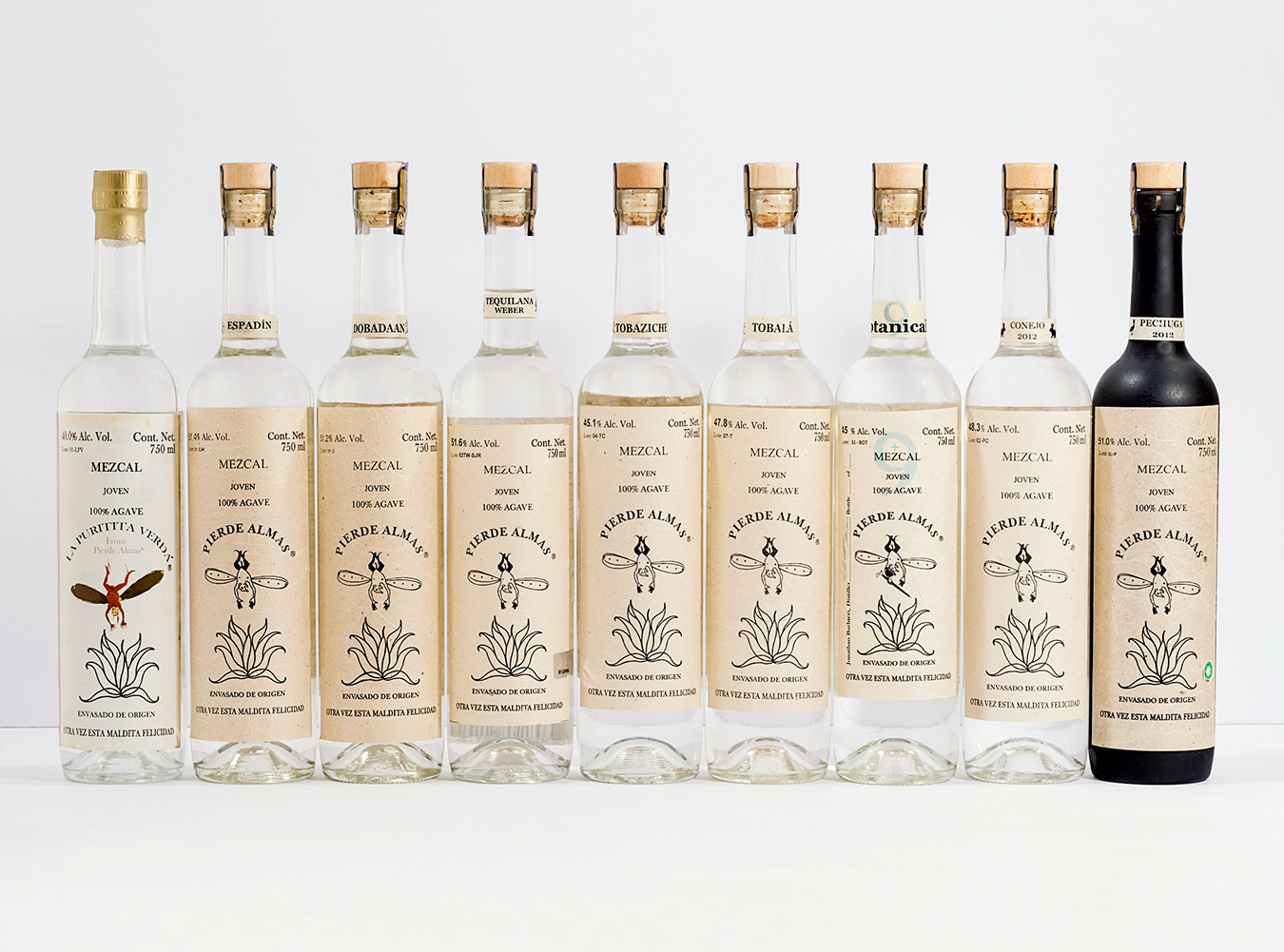
Jonathan Barbieri’s Pierde Almas mescal.
-
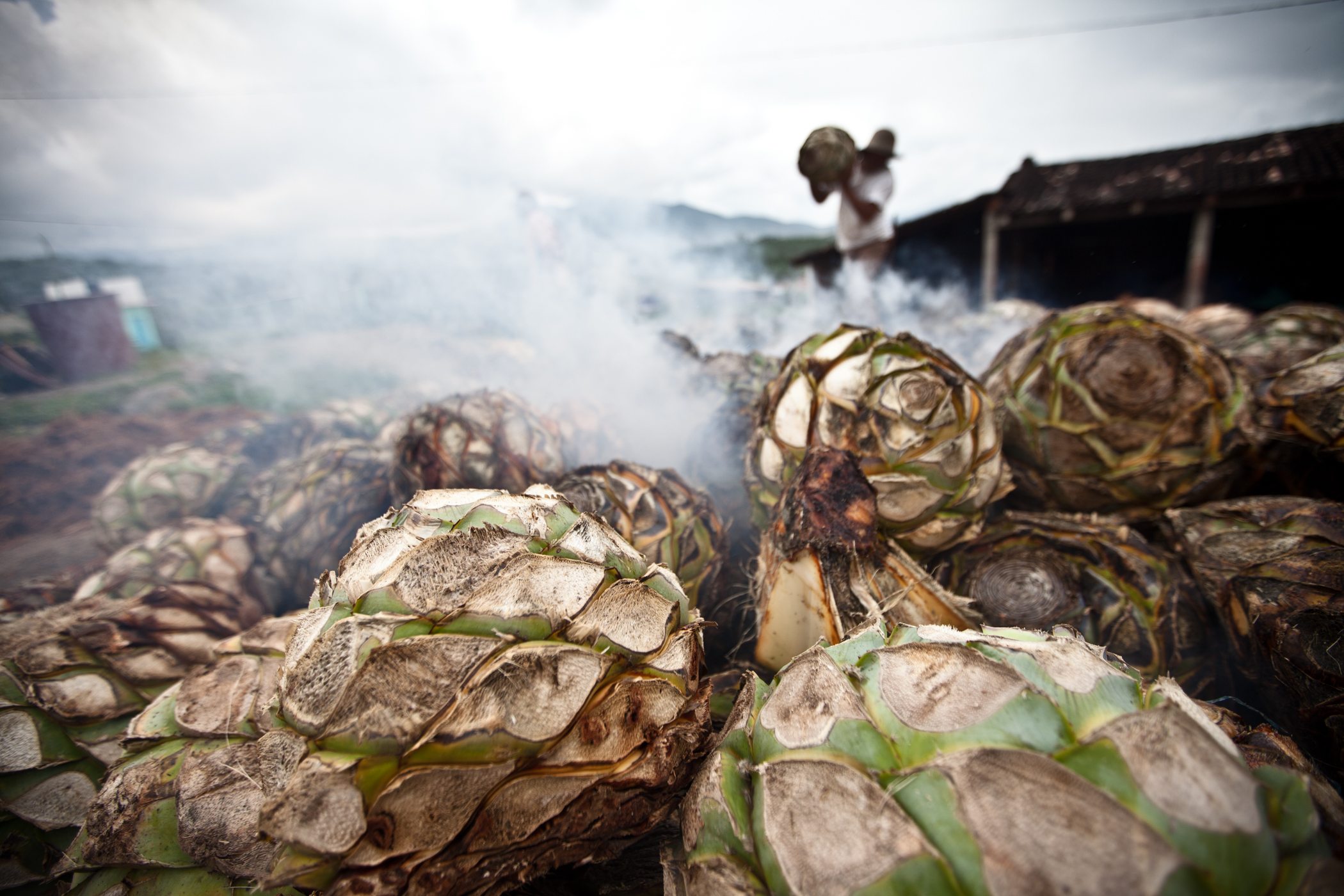
An earthen-pit oven is loaded with up to 10 tonnes of agave piñas. Cooking breaks down the starches into simple sugars, which are more easily converted into mescal by natural fermentation.
-

Splitting a piña in the field. Piñas can weigh up to 90 kilograms.
-

Loading an earthen-pit oven in Chichicapam. It takes six to 10 days to bake the piñas.
-

Baked wild Tobaziche piñas.
-
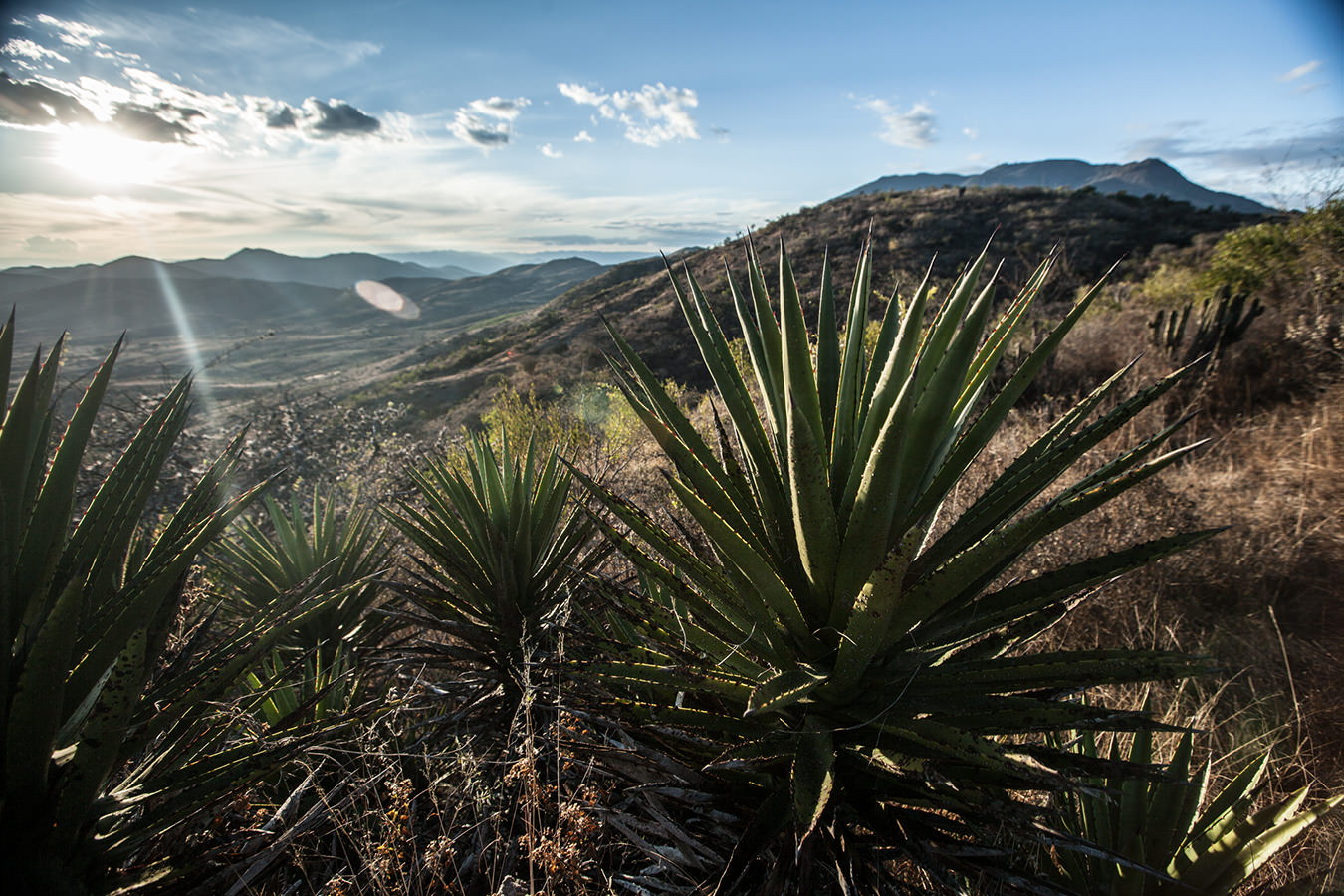
Wild agave in the Chichicapam foothills, Mexico. Mescal can be made from over 30 varieties of agave—most of them wild, each with its own unique flavor profile.
Pierde Almas Mescal
Agave artistry.

If you are a fan of craft cocktails and drinking sapid spirits, it’s likely you’ve encountered the smoky, earthy, warm flavours of the agave-based distillate mescal. If you haven’t, you’re in for a treat.
“Most mescal is at least a little smoky,” says Ivy Mix, award-winning New York bartender and brand ambassador for Pierde Almas mescal. “With any spirit—especially when making cocktails with it—I like to think of the base flavours in that spirit as scaffolding. Mescal has the biggest scaffolding out there. You get smoke, yes, but you can also get cooked agave, bitter notes, and great fruit. I think it’s safe to say that the people who like mescal are people who enjoy rich, intense flavours.”

Mescal—mezcal in Spanish—has often been called the cousin of tequila. They are both made only in Mexico and produced from the agave plant; however, it’s more accurate to say that mescal is really the grandfather of tequila, because it’s older and influenced by more factors. All tequila is technically mescal, but not all mescal is tequila.
Making alcohol from agave has its origin in pre-Columbian times, when priests and priestesses would use the fermented plant in ceremonies. When the Spanish arrived in Mexico in the 1500s, they brought distillation methods.

Although tequila can only be made from Weber blue agave, mescal can be produced from nearly 30 types of agave. The heart of the agave plant, called the piña, is baked within dirt underground, creating that smoky note in mescal that’s absent in tequila. The levels of smoke that come through in mescal vary from label to label, but all contain some delight of campfire at the base—it’s the artistry and the intense flavours that make it such an alluring spirit.
Enter Jonathan Barbieri, an American painter who put down his brushes and created Pierde Almas, a hyperartisanal, small-batch mescal. “I didn’t plan to stay in Mexico long,” says Barbieri, who used to live in San Francisco. “I’ve been here now for 30 years.” He first moved to Oaxaca to work on his art, and would go to bars to meet the locals. “I believe that one way to understand any host culture is to drink the native spirit,” he says. “You make friends and open doors with each glass.”
Mescal’s flavours appealed to Barbieri, who saw the spirit as a type of canvas, and he began to study it in his spare time. “I was fascinated,” he recalls. “And about seven years ago, I started bottling my own, just for friends. All of a sudden I had a lot more friends than I thought I did.”
At any given time, Pierde Almas will have between nine and 11 mescals on the market, with handmade labels using Oaxacan fibres and 500-year-old papermaking methods, as well as Barbieri’s own drawings. At the brand’s core, you’ll find Mezcal La Puritita Verdá; developed for the cocktail market, it has a hint of savoury sweetness, earth undertones, and a lower alcohol content.
What really makes Pierde Almas stand out among the mescal offerings in North America is not just great traditional mescal but also Barbieri’s unique experimentation. One of the most talked-about types of mescal across any label is the rare pechuga; it’s produced by several brands, including Pierde Almas. What makes it so special is its third distillation: a raw, skinless chicken breast is washed to remove any grease and then suspended inside a still, along with native fruits. The vapours rise over the raw meat and condense into a beautiful distillate with smooth tones.
Barbieri bucked tradition, making his Pierde Almas Pechuga with a wild black turkey breast instead. That opened a door to his label Mezcal de Conejo, which is made using the saddle of a wild rabbit. “We use specific heirloom mountain fruits in the stills like wild apples, pineapples, and tejocote [a species of hawthorn fruit],” he says. “In Chichicapam, Mexico, during the spring, there is a hunting ritual in which men are sent out into the hills to hunt rabbits, and I got curious.”
To date, Mescal de Conejo is the only label in the world made this way, though its production is limited to about 400 bottles per year. “When we harvest these ripe fruits in November, the rabbits are hiding,” Barbieri says. “We can only produce Conejo based on the number of rabbits the men catch and the amount of fruit we can purchase.”
Pierde Almas fans can also enjoy another unique variety called Pierde Almas +9, which launched last year. The +9 is a gin-mescal, which starts with a double-distilled mescal. Nine botanicals common to gin are macerated for 24 hours and incorporated in a third distillation. The result is a spirit that lingers on the tongue, allowing the flavours to unfold for a lasting sipping experience that is quite unlike anything else.
Photos by Daniel Robles.

